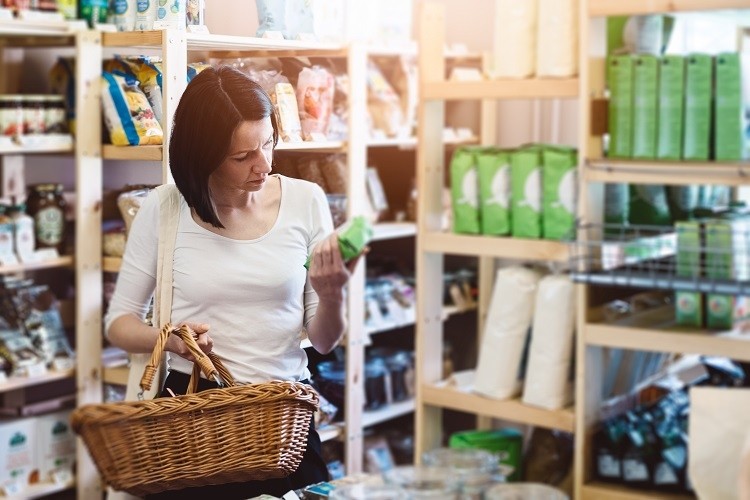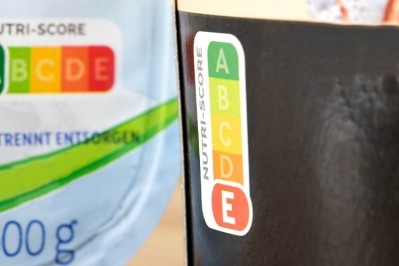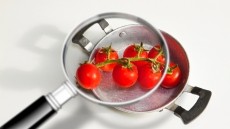Denmark ‘first country in the world’ to develop its own climate label for food

On 16 April, Denmark’s Minister of Food, Agriculture and Fisheries, Rasmus Prehn, announced plans to publicly fund the development of a climate label for food.
A total of DKK 9m has been allocated to the project this year, with a proposal expected by the end of 2022.
Danes want to eat more climate-friendly foods, but don’t always know which products are the ‘green choice’ when making purchasing decisions in-store, suggested Prehn when announcing the plan.
“Therefore, Denmark must now have a state-controlled climate label. It must be one unified brand that consumers can trust, so we can avoid a forest of brands that just confuse.”
The government is now setting up a working group, to which all relevant actors will have the opportunity to contribute. Results will be revealed ‘before Christmas’, so that Denmark can become the ‘first country in the world’ to have a ‘state-controlled’ climate label, he continued.
“We are at the forefront of the global scene, showing the way forward in the green transition.”
A risk of proliferation?
Environmental labelling is tipped to be an important tool in helping empower consumers to make more sustainable food choices.
As part of its pledge to achieve net-zero carbon emissions by 2050, the European Commission is preparing to table a sustainable food labelling framework.
In the meantime, an increasing number of environmental labels are entering the market, from Eco-Score to Planet-Score and a new labelling scheme developed by Foundation Earth.
The more eco-labels are developed, the greater the risk of proliferation, however. Minister Prehn referenced this problem – of having too many competing labels that can confuse consumers – in his announcement.
Governments may believe the solution to proliferation lies in developing one harmonised label, however it has previously been suggested that in fact this does the opposite: it adds yet another eco-label to the mix.
The answer could well lie in making a label mandatory. However, the European Commission will not allow Denmark to demand all foods carry a climate label, and it will therefore remain voluntary.
Paul Holmbeck from Holmbeck EcoConsult believes he may have found a solution. Taking to social media, the consultant and IFOAM World Board Member argued that retailers can demand the new label be used on all products.
“Otherwise, the products with high emissions, where consumers are most in need of information, will go unlabelled.”
Responding to consumer demand
Denmark has a history of incorporating environmental sustainability into government initiatives.
Last year, the country included CO2 emissions into its dietary guidelines for the first time, resulting in recommendations to eat more legumes and vegetables, and less meat. The Climate Council estimates that by following these guidelines, an average Dane aged 6-64 can reduce their climate footprint by 31-54%.
Both initiatives feed into the government’s plan to reduce its climate footprint by 70% by 2030.
They also respond to consumer desire to make a difference, according to food culture organisation Madkulturen, which estimates the majority of Danes believe that it is important to combat climate change through what we eat: six out of 10 would like to eat more climate-friendly foods.
And it may be possible to do so, with the right tools. Of the 7 tonnes of CO2e emitted by Danes from private consumption, around 2 tonnes come from food and beverages, according to the Danish Energy Agency.
At the same time, most Danes (three out of four) find it difficult to see what climate footprint a food product has. According to the Danish Consumer Council, just two out of approximately 1,100 consumers surveyed can correctly rank eight ordinary foods according to how much they burden the planet.
Retailers’ perspectives
Denmark’s strategy has been welcomed by the retail sector, on the condition the labelling scheme is credible.
De Samvirkende Købmænd (the Federation of Retail Grocers in Denmark), a trade organisation representing supermarkets and grocers across the country, said it has three requirements for climate labelling: ‘credibility, credibility, credibility’.
“Therefore, it requires an unprecedented thorough preparation, where all parameters are optimally taken into account, e.g., also production conditions and transportation before a brand is launched,” said John Wager, CEO of De Samvirkende Købmænd.
“Average considerations must not make the label on specific goods more misleading than indicative, and the label must have broad support from both suppliers and retailers.
“In other words: ‘Yes’ to a climate label when we are sure that it has credibility and can have an impact in line with the organic label, the keyhole label, and the Nordic Ecolabel.”
Supermarket retailer Coop, too, stressed the importance of credibility.
“It is crucial for the green transition in the grocery trade that we provide customers with credible communication that they can use when they are in the supermarket and have to choose which goods they want to buy,” said Coop Executive Vice President Per Thau.
Denmark’s largest retail group, Salling Group, also expressed its support, as long as the label serves the consumer. “The ambition and the long-term goal must be a label where the consumer can see the specific climate impact directly on the individual product,” said Salling Group’s CSR director Henrik Vinther Olesen.
“Therefore, we welcome the Minister’s proposal and look forward to being able to contribute with the experiences we have gained through our own experiments with climate labelling and seriously move the climate agenda.”

























